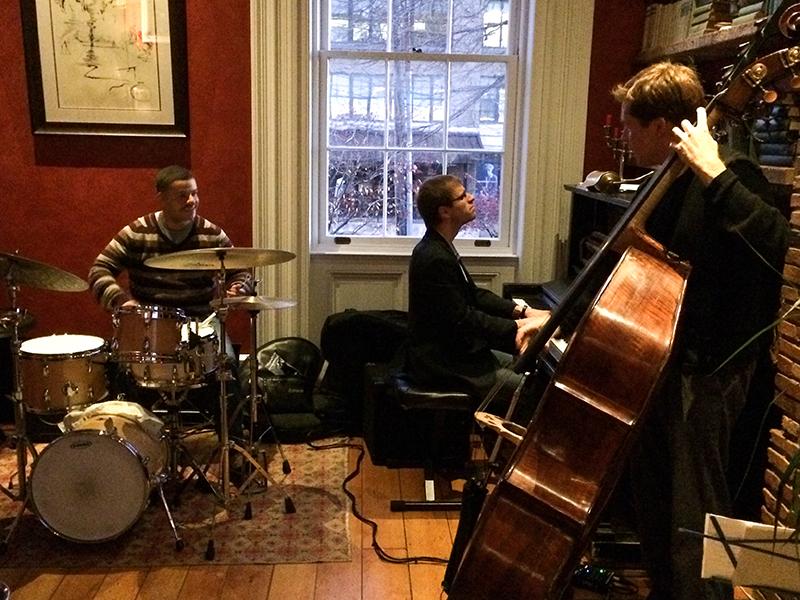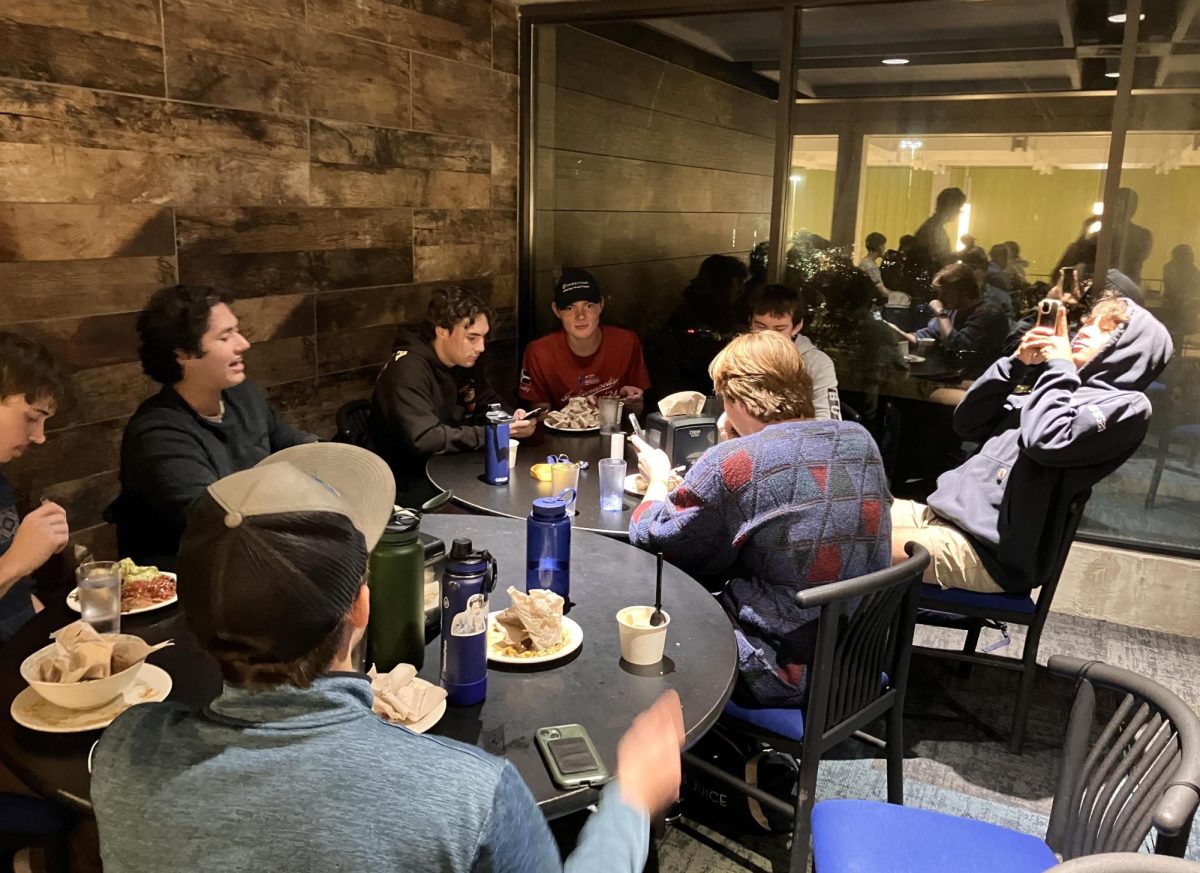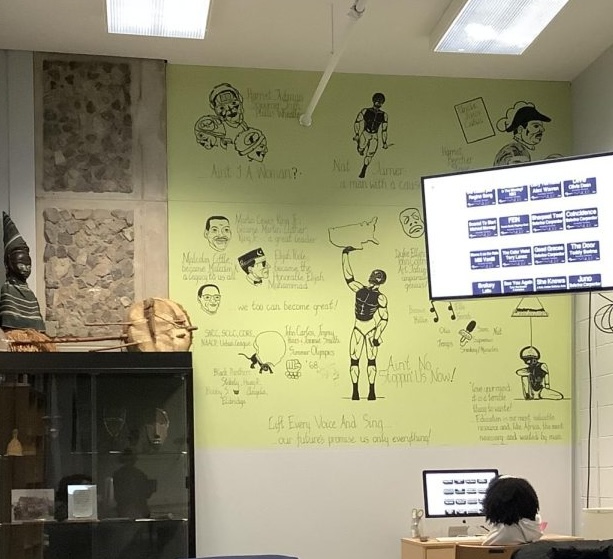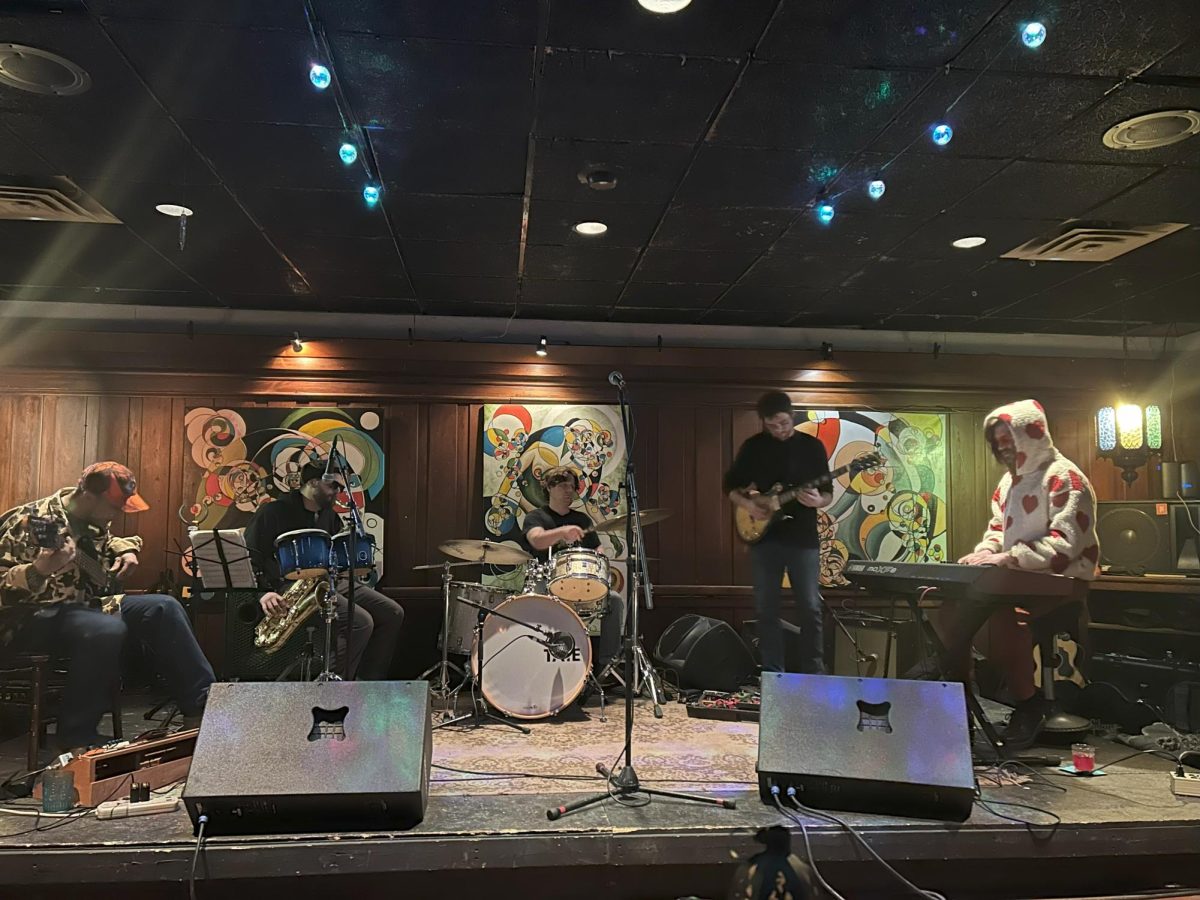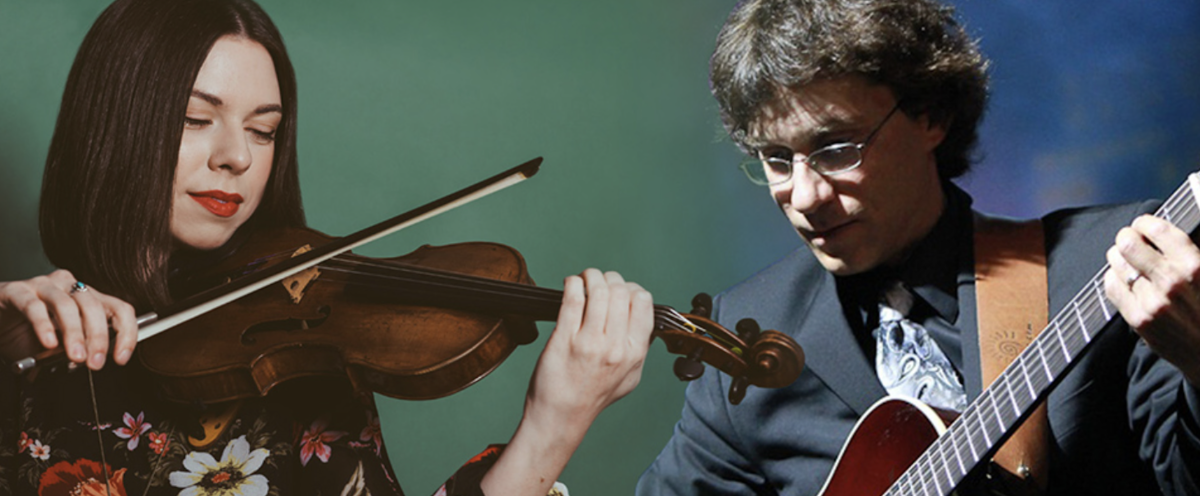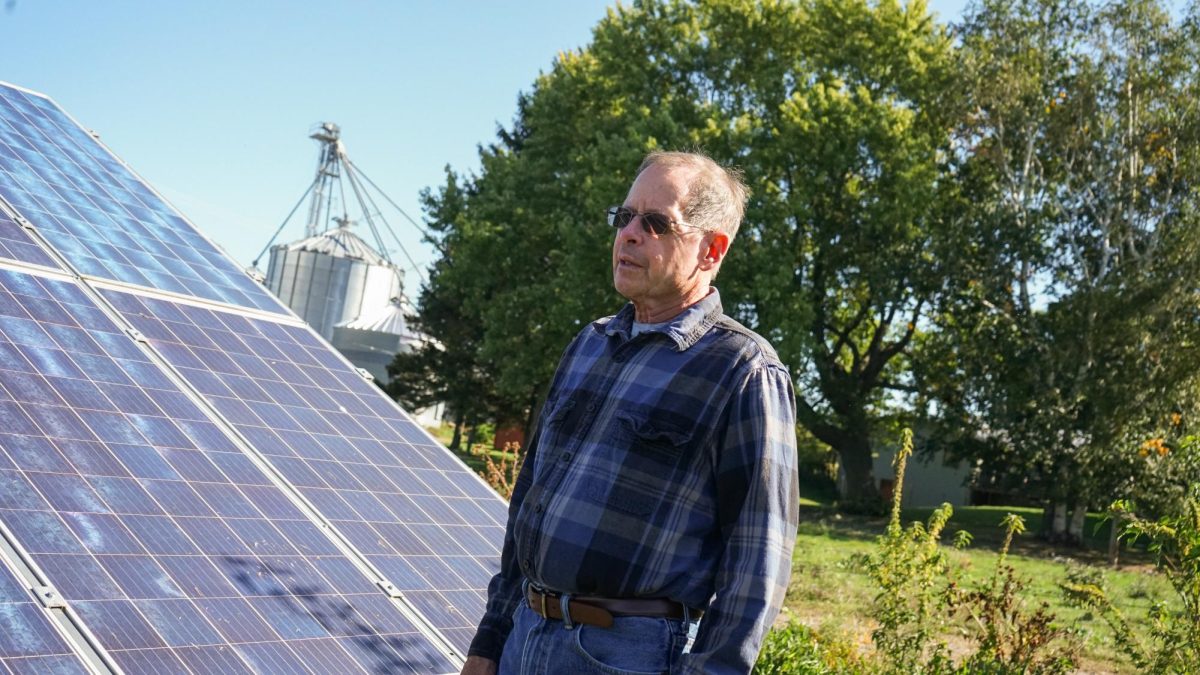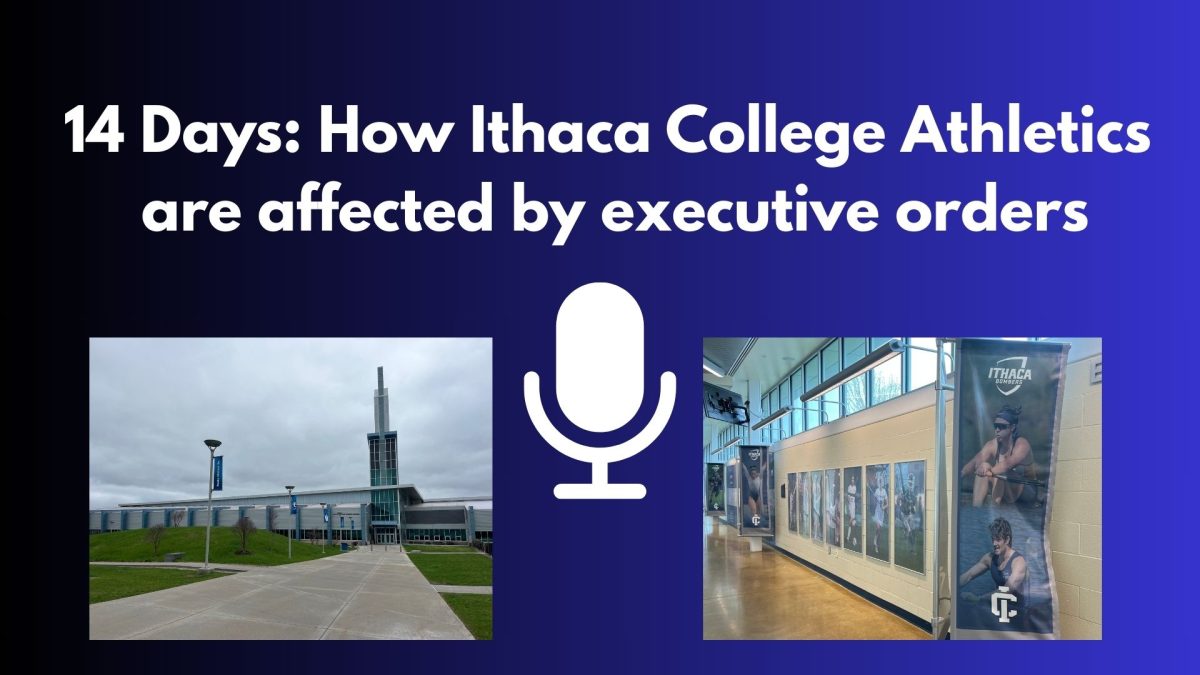It was getting dark outside, and the room was aglow with a dim, soft lighting. The earthy smell of old wood and cocktails brushed the air just enough to set the mood — and then the music started. The jazz music: jumping piano notes and nimble drum beats a smooth double bass.
This wasn’t your elevator music, background noise jazz. This was a jazz that was alive, jazz played with passionate frenzy that has kept people coming back to Argos Inn on East State Street every Wednesday night just to hear them play.
“Them” being i3°, a trio of Greg Evans, Nicholas Walker and Nick Weiser. i3° is pronounced “thirteen degrees.” While Evans said many things went into the name, it was predominantly based on the concept of the “ithaca trio” — “i” “3” “o.” It also works as a conversation piece. The three are Ithaca College professors in the Department of Music Performance, and they joined together in 2011 to create music, with the goal of escaping the academic setting through the community.
“It’s a community experience,” Evans said. “And for us to sit in a practice room and get all this stuff together to maybe give a recital or two recitals a year just didn’t jive with what was actually going on.”
The space at Argos Inn was dotted with customers, but more people came to fill the space as the clock moved closer to 5 p.m., the posted start time for i3°’s performance. Dedicated regulars sat in the front in antique-looking couches and armchairs, while others claimed seats at the bar. Regardless, Weiser said the experience when playing in an intimate setting is always different.
“When you’re playing in front of people in a casual setting, it’s a conversation with the audience. It’s a conversation with each other,” Weiser said. “We get this sort of interconnectedness with the three of us, but then we get to have this communication with the audience, and that’s really helped me re-frame my thinking about playing and performing.”
One woman named Flossie Binder took the prime real estate: the front center. The self-titled “jazz-junkie” pulled up in a lime-green cab nearly 15 minutes before the show. Walker said she comes to see them every week.
“I’ve seen the best of the best of the best all over the country,” Binder said. “Then I moved here, and they’re the best around here … these guys are great.”
Since it’s founding, the group has taken on many different venues, like classrooms, hospitals prisons, churches and other community spaces, to spread and emphasize its ideas of togetherness. One of the most memorable for each of them was when they played at New Hope Housing in Houston, Texas, in January 2015.
Walker said the director of the house wasn’t convinced the space was what they were looking for when they first approached her about a show.
“We were like, ‘We don’t want to play a concert, we just want to play music and have the music be for people,’” Walker said.
New Hope Housing is an organization that aims to give housing and support services to people with limited incomes. The people who lived there were largely strangers, with rooms that opened up to standard hallways and a basic common room area with a TV, Walker said. But once they began playing, things changed. Nearly 40 people showed up to hear them play.
“Half of these people didn’t know each other,” Weiser said. “I think getting to be a part of that is a really special thing. Getting to have those interactions, really genuine, honest interactions with different crowds of people.”
“People were singing, they were dancing, they were laughing, they were crying,” Walker said. “All of the misconceptions — we don’t have a concert hall space, we don’t have an audience — music doesn’t need any of those things. Maybe musicians do, or maybe the traditions do, or maybe there’s ways where those things matter, but music doesn’t need it.”
That sense of music as a higher form is what has guided the trio.
Weiser described music as a potentially cathartic experience, with profound effects that listeners can take solace in to comfort themselves. Walker went on to describe the biological changes music can produce, saying music as a connector has been proven through science.
According to the American Music Therapy Association, music has become a documented form of treatment for different diseases and disabilities. Evans said he has seen a sense of unity come about through music, and sees it as more than physical healing.
“Music has the ability to connect people and heal the soul, and we all need that type of healing,” Evans said. “It’s not just about those who are listening to the music, but it’s about how we together are creating a bigger experience than a concert … It’s totally about the music, and then it’s not at all about the music.”

